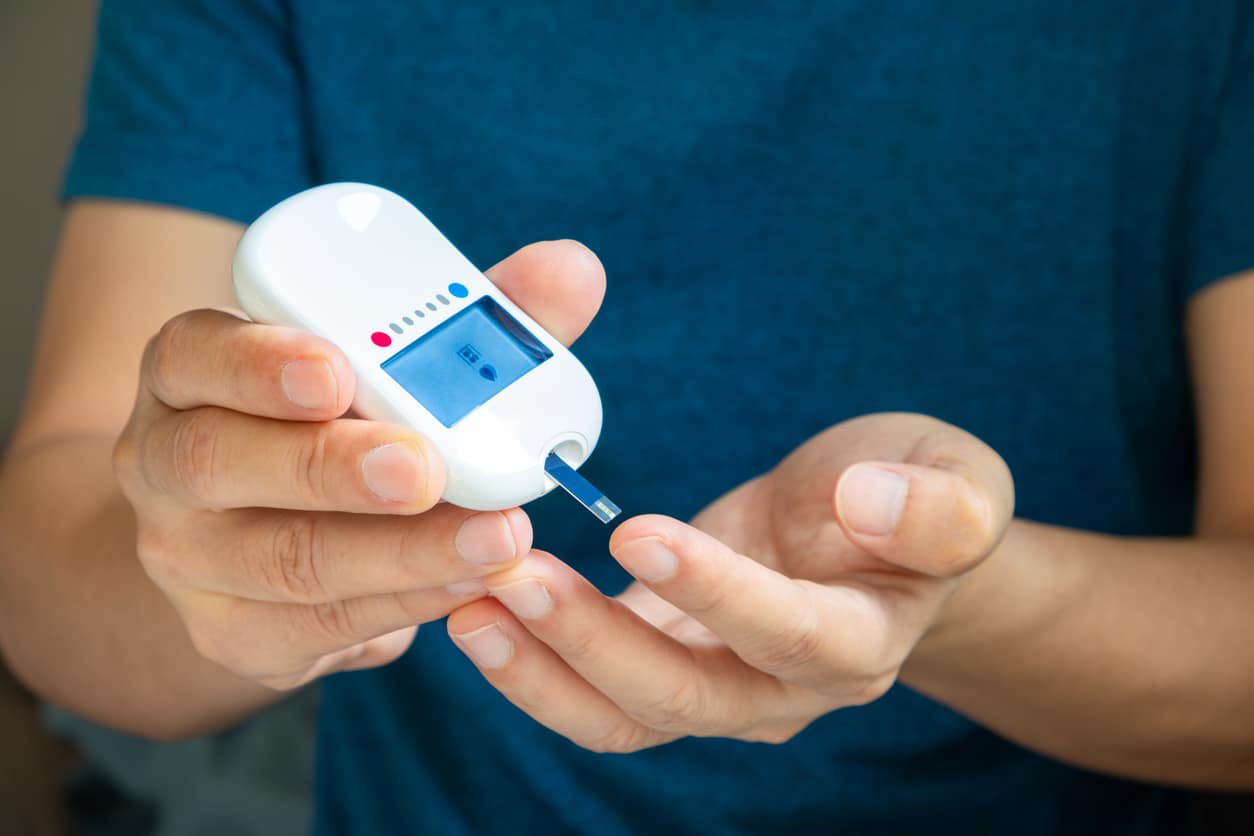Approximately 11% of the U.S. population has diabetes. If you have diabetes, you’re probably familiar with its most common side effects, including fatigue, frequent urination, unexplained weight loss and blurred vision. However, one area that often gets overlooked is hearing.
Research shows that even prediabetes increases the risk of hearing loss by 30%. Let’s take a look at how diabetes affects hearing and how you can protect your ears from damage.
How Diabetes Affects Hearing

Diabetes interferes with hearing in two significant ways: high blood sugar damages small blood vessels that supply the inner ear, and low blood pressure damages how the auditory nerves that transmit sound signals from the ear to the brain function (Centers for Disease Control, 2024).
Changes in hearing may be subtle at first but may include:
- Difficulty following group conversations
- Frequently asking people to repeat themselves
- Feeling that others are mumbling
- Turning the TV or radio up higher than usual
- Feeling exhausted after social interactions
Because hearing damage is often permanent, managing your blood sugar effectively and seeking hearing loss treatment early is crucial.
How Can I Manage Diabetes?
There are a few different things involved in managing diabetes, including:
- Monitoring blood sugar. Monitor your blood sugar using a glucose meter and a blood prick. Your primary care provider will instruct you on how often to use the glucose meter.
- Insulin. Type 1 diabetes and some Type 2 diabetes patients will require synthetic insulin injections to manage diabetes.
- Oral medications. Oral diabetes medications can help manage blood sugar levels for people who still produce some insulin, including people with Type 2 diabetes, prediabetes and gestational diabetes.
- Exercise. Exercise will increase insulin sensitivity and reduce insulin resistance. Try to fit a daily run along the Augusta Riverwalk or a trip to the gym into your routine.
- Diet. Your diet significantly impacts your blood sugar. When you take insulin, you need to keep track of the carbs in food and drinks, as the amount of carbs you eat will dictate the amount of insulin you need.
How Can I Protect My Hearing?
Not all hearing loss is preventable, but you can lower your risk by effectively managing diabetes. If you’re prediabetic, talk with your provider about ways to stop your condition from progressing to diabetes.
In addition to managing diabetes, you should schedule regular hearing checkups to spot signs of damage and set yourself up for early treatment with hearing aids. Contact Augusta – Aiken ENT & Allergy today to schedule your comprehensive evaluation with one of our specialists.